Build your network. Attend alumni mixers. Connect on LinkedIn.
We’ve heard from friends, counselors, and mentors what we need to do to prepare for our career and then excel and advance in them.
Figuring out your career path, job titles, internships, industry jargon and more can take up as much of your time as your course work does.
One lesser used tool, you can deploy to check several of these boxes off at once, is the informational interview.

The idea of the informational interview is simple enough: locate individuals in the industries you are interested in, find a connection to them, ask to speak with them, and learn as much as you can.
What most people do wrong in these interviews is approaching them looking for a job. That’s not the point. The point is to make a connection with someone in the industry and genuinely listen to their story.
Here are a few pointers on having a successful informational interview and how it will help you along your professional journey.
Wait, you do that too? That’s crazy.
Finding someone connected to your network is always your best starting point. Whether they are an alumni, a friend of your parents, participate in the same clubs or activities as you, find someone you can talk about non-work things with.
This initial connection allows you to get your foot in the door and a reason why they might be interested in chatting with you. Another reason is that most professionals enjoy sharing information about themselves and their jobs, and especially love giving advice! Some may simply believe in encouraging newcomers to their profession; others may be scoping out prospects for anticipated vacancies. So talking about how you both play frisbee golf, post tutorials on Tik Tok, or volunteer for the same charity can start the conversation off in a familiar and more casual way.
Tell me you did a background check.
You should really do your research before meeting with someone. That’s just generally good advice in all aspects of life. From electricians, to dates, to possible employers, do your homework.
Remember that this person is taking valuable time out of their day to meet, so learn as much about them beforehand as possible. You don’t have to memorize their resume, but knowing their general background, industry, and current position within their company will allow you to ask more insightful questions and impress them that you cared enough to learn about them.
By failing to prepare, you are preparing to fail.
The person you are speaking with already has a job and is in the industry, so they are already prepared. You on the other hand need to come with questions in hand that will steer conversation towards the answers you seek.
Organize your questions into categories so you don’t jump around sporadically. Think about the things you’d like to know about the industry in general and then dive into more specific topics. This is a great way to learn about company culture, what their role does specifically, trends in the industry and even work/life balance.
Feel free to take notes. There is no way you’re going to remember everything they say, so jot down their responses. Listen for buzz words that pop up frequently as they may be good to add to your resume or cover letter.
Every end is a new beginning.
A couple last things to think about during the conclusion of your interview:
Keep track of the time. Looking at your phone can still seem rude, so wear a watch if possible. When you are about seven minutes from the end of the meeting, mention that you are coming to the end of your time and want to be respectful. This allows them to continue the conversation or start to wrap things up naturally.
Ask if there is anyone else they feel you might benefit from asking similar questions to. Being the one to connect you with a peer of theirs is another way that those being interviewed feel they are helping out. Remember, this allows your network to grow as well as helping cement your connection.
Send a thank you email later in the day or the next morning. Be sure to thank them for their time, mentioning things you spoke about, and looking forward to speaking with them again. A little gratitude goes a long way.
Remember, the point of these interviews is to learn more about where you may want to go professionally, not to get a job. However, these interviews can help you find a place in the forefront of people’s minds when they do hear of an opening somewhere. So many times people find out about a job because a friend or family member told them about it.
That’s the kind of information you can use.
To learn more about informational interviews, great questions to ask, and even sample correspondence for your initial email, check out the Michigan Engineering Career Resource Center’s website or email them at ecrc-info@umich.edu to schedule an appointment.

